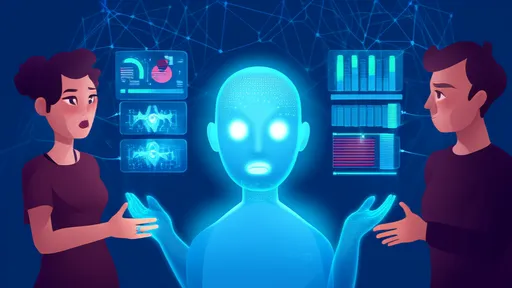In a groundbreaking study published in The Lancet, researchers have uncovered a startling truth: social isolation now poses a greater risk to mortality than smoking. The findings, which analyzed data from hundreds of thousands of participants across multiple countries, suggest that loneliness and lack of social connection are not just emotional burdens—they are lethal. This revelation challenges conventional public health priorities and demands urgent attention from policymakers and healthcare providers worldwide.
The research team, led by renowned epidemiologists, spent over a decade tracking the health outcomes of individuals with varying degrees of social connection. Their results showed that those experiencing chronic social isolation had a 50% higher mortality risk compared to their socially connected peers. Even after adjusting for factors like age, socioeconomic status, and pre-existing health conditions, the correlation remained stark. Perhaps most shockingly, the mortality impact surpassed that of smoking 15 cigarettes daily—a comparison that has sent ripples through the medical community.
What makes social isolation so deadly? Scientists point to a perfect storm of physiological and psychological mechanisms. Prolonged loneliness triggers chronic inflammation, weakens immune function, and disrupts sleep patterns—all pathways known to accelerate aging and disease progression. The stress of isolation also elevates cortisol levels, which over time can damage cardiovascular health. Unlike smoking, which primarily affects physical health, social isolation attacks both body and mind, creating a vicious cycle that's harder to break.
The study identifies particularly vulnerable populations, including elderly adults living alone, remote workers, and young adults addicted to digital interactions that replace genuine connection. Urbanization trends and pandemic-era lifestyle changes have exacerbated the problem, with many people now going days or weeks without meaningful face-to-face contact. Researchers warn that what was once considered an unfortunate personal circumstance has blossomed into a full-blown public health crisis.
Healthcare systems worldwide remain woefully unprepared to address this silent epidemic. While smoking cessation programs receive substantial funding and institutional support, initiatives combating social isolation languish with minimal resources. The study's authors propose integrating social connection assessments into routine medical checkups, similar to blood pressure screenings. They also advocate for community-based interventions that rebuild social infrastructure—from neighborhood gathering spaces to intergenerational mentorship programs.
Technology's role in this crisis presents a paradox. While digital platforms claim to connect people, the study found that virtual interactions don't provide the same mortality-protective benefits as in-person relationships. Superficial social media engagement may actually worsen feelings of isolation by fostering unhealthy comparisons. However, researchers note that thoughtfully designed technology—like video calling systems for homebound seniors—can serve as a bridge to meaningful connection when used intentionally.
The economic implications are staggering. Beyond the human cost, social isolation burdens healthcare systems and reduces workplace productivity. The study estimates that countries could save billions in healthcare expenditures by implementing effective anti-isolation measures. Some forward-thinking corporations have begun addressing workplace loneliness through collaborative office designs and team-building initiatives, recognizing that employee well-being directly impacts their bottom line.
Cultural attitudes toward loneliness must change, argue mental health experts. Unlike smoking, which carries clear social stigma, isolation often hides in shame—victims blame themselves rather than recognizing broader societal failures. Public awareness campaigns could help normalize discussions about loneliness and encourage people to seek connection without judgment. Schools might incorporate social skills training alongside traditional academics to prepare children for maintaining relationships throughout life.
This research arrives at a critical juncture, as many societies emerge from pandemic lockdowns only to face lasting changes in how people interact. The findings suggest that rebuilding social connections should rank alongside vaccination campaigns and cancer screenings as essential preventive medicine. As one researcher starkly put it: "We've medicalized smoking cessation but romanticized isolation. These data prove we've got it backwards."
Moving forward, the study calls for immediate action at multiple levels—from individual doctors checking on patients' social lives to urban planners designing more communal living spaces. The researchers emphasize that unlike many public health challenges requiring complex medical solutions, combating social isolation often involves low-cost, high-impact strategies: phone check-ins, walking groups, shared meals. In an era of advanced medicine, something as simple as regular conversation might be among our most powerful tools for longevity.
As the science continues to evolve, one message comes through clearly: human connection isn't just nice to have—it's a biological necessity. The medical community can no longer treat relationships as separate from physical health when the evidence shows they're fundamentally intertwined. This paradigm shift could transform how we approach wellness, making social prescriptions as common as pharmaceutical ones in the years to come.

By /Jul 28, 2025

By /Jul 28, 2025

By /Jul 28, 2025

By /Jul 28, 2025

By /Jul 28, 2025

By /Jul 28, 2025

By /Jul 28, 2025

By /Jul 28, 2025

By /Jul 28, 2025

By /Jul 28, 2025

By /Jul 28, 2025

By /Jul 28, 2025

By /Jul 28, 2025

By /Jul 28, 2025

By /Jul 28, 2025

By /Jul 28, 2025

By /Jul 28, 2025

By /Jul 28, 2025

By /Jul 28, 2025

By /Jul 28, 2025